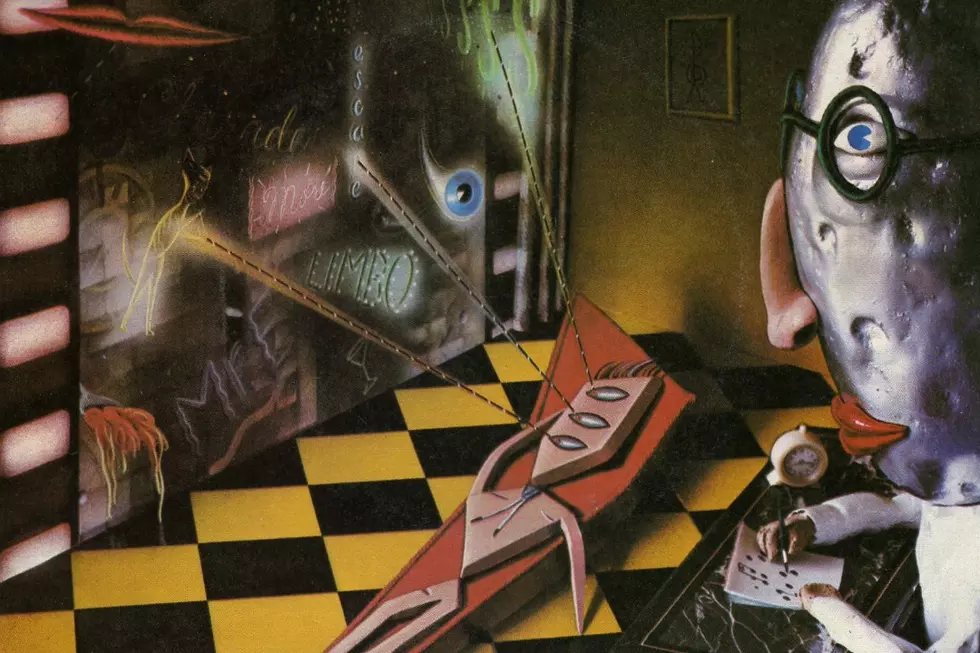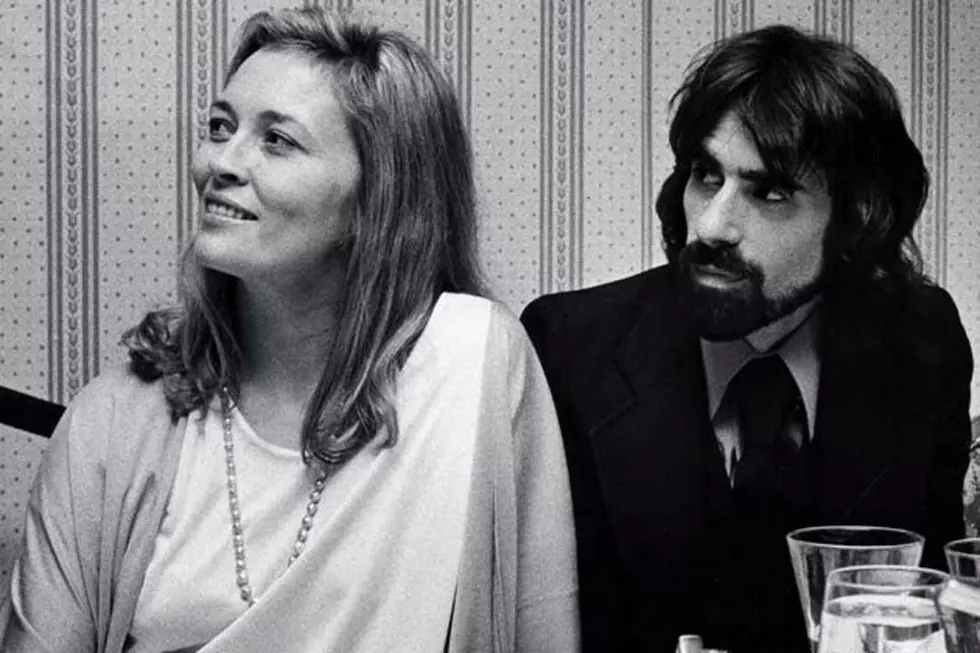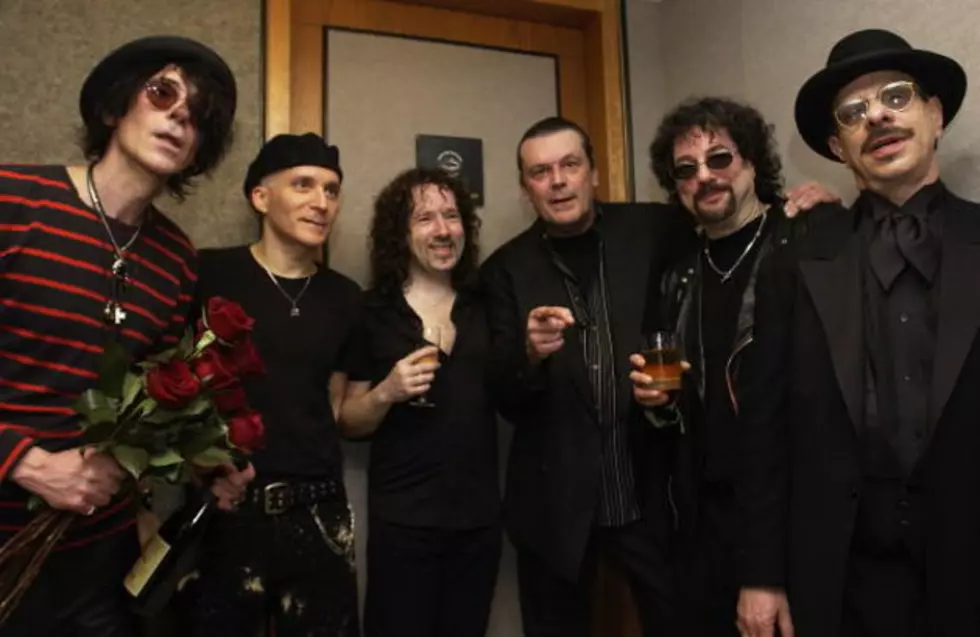
Revisiting the J. Geils Band’s Hit ‘Freeze-Frame’ LP
After 10 years and 11 albums, the J. Geils Band nudged into the pop mainstream with 1980's Love Stinks — but that was just the warm-up for their next, and biggest, album.
Released on Oct. 26, 1981, Freeze-Frame found the band further embracing the New Wave pop makeover they'd started with Love Stinks, making more room for synths and adding another layer of gloss to the production. Yet even as certain superficial elements of their sound evolved, they remained steadfastly anchored in rock and the blues — and as keyboard player, producer and chief songwriter Seth Justman was quick to argue, honoring your roots doesn't necessarily mean turning your back on what's happening around you.
"Freeze-Frame definitely has to do with the state of the world, in our interpretation of it," Justman told Rolling Stone. "We felt we had to deal with issues now — especially now. The world is so fucked up — the nuclear bullshit, the economic state. I think what an artist has to do is interpret in his own way where things are, at a particular time. That's the best thing."
Ultimately, unlike any number of rock acts who altered their sound to suit pop radio in the '80s, the J. Geils Band made themselves more radio-friendly without sacrificing the essential components of their music. Freeze-Frame sounded a lot more modern than the group's earlier efforts, but it was still cut from substantially the same cloth. As Justman and singer Peter Wolf pointed out, that made a huge difference.
"Our past history is our credibility," Wolf told Creem. "We’ve never done a cheap shot, we’ve never done a commercial thing, all our albums we feel strongly about, we feel we’ve committed ourselves to every show we do, we work real hard, there’s nothing we’ve done we’re embarrassed about, and in 14 years we feel real proud of that, that there’s no moment in our history that we feel embarrassed by or apologetic for. We really dedicated ourselves."
"It’s not a preconceived thing of ‘Let’s get something on the radio,'" added Justman. "I mean, what we’re trying to do is grow. The reason you didn’t hear too much synthesizer before is because we couldn’t afford them."
Still, the steps the band took for Freeze-Frame were something of a gamble. They weren't a multi-platinum act in the years leading up to this record's release, but they'd earned a passionate fan base through years of sweat-soaked, incessant touring — and if they'd made a record that left those listeners crying sellout, they'd be worse off than before.
Watch the J. Geils Band's Video for 'Centerfold'
On the other hand, they'd been gigging since the late '60s and releasing albums nearly as long, and just had a handful of gold records to show for it. Like any veteran act, the J. Geils Band had an eye toward slowing the pace at some point — and getting out of debt with their label — and the lure of hit singles made the calculated gamble of Freeze-Frame worth it.
"I think our audiences will accept the new stuff," Wolf told the The New York Times. "A lot of rock bands tend to underestimate their audience. It might not work, but if you don't challenge yourself when you make an album, why bother? At least we aren't repeating ourselves; Freeze-Frame sure isn't Love Stinks Again Like We Did Last Summer."
"We’d rather be successful than unsuccessful – the success gives you some financial stability, a means of putting more money into what you’re doing, into concentrating on it. If you want to abuse it, then you abuse it and become an asshole," Justman said. "The main thing is to be able to continue to grow as musicians and as people. To grow. Just grow."
The band's gamble paid off in a big way. Freeze-Frame went to No. 1, their only album to do so, going platinum and spinning off a trio of Top 40 singles ("Centerfold," "Freeze-Frame" and "Angel in Blue") along the way. Nearly 15 years after they started, the J. Geils Band was an overnight success.
Those sales weren't everything they were cracked up to be, however. Even as they topped the charts, Wolf and Justman were drifting apart, and their songwriting partnership — long the nucleus of the group's creative engine — was grinding to a halt. After a brief, abortive attempt to cut a follow-up to Freeze-Frame, Wolf exited the lineup for a solo career, leaving his former bandmates to soldier on with Justman on vocals for a single studio LP — 1984's You're Gettin' Even While I'm Gettin' Odd — before folding. It might not have made much sense from a business standpoint, but not even a commercial breakthrough was enough to cover up creative differences.
"Success doesn’t necessarily make things easier," Wolf told Night Flight in 1985. "People kind of think that. It definitely makes the sort of financial sense, it gives you the freedom to do certain things, but it also brings upon whole new sets of problems. I think that for a long time we really stuck together to try to get ourselves out of this hot water we were in and we were very good friends. And then with the success new problems arose, personality problems between people."
In the end, as with many band breakups, the Geils Band's split produced parts that were, in some respects, audibly less than their sum. Wolf's solo career started with a splash, with 1984's Lights Out going Top 40 and producing a pair of hit singles. By the end of the decade, however, that momentum had stalled considerably; for the other members of the group, the years after the split were primarily marked with lower-profile releases and production or session work. They'd assembled an impressive catalog during their time together, but there was still a sense of untapped potential and unfinished business.
The J. Geils Band's story wasn't quite over, as the group reunited with Wolf for a 1999 tour. Those shows didn't lead to any new music, but they opened the doors to a new era in which periods of extended downtime were punctuated with brief reunion tours. Then they memorably split with founding guitarist John Geils in 2012, prompting a lawsuit. Geils died five years later.
Top 100 Live Albums
More From 100.7 KOOL FM










